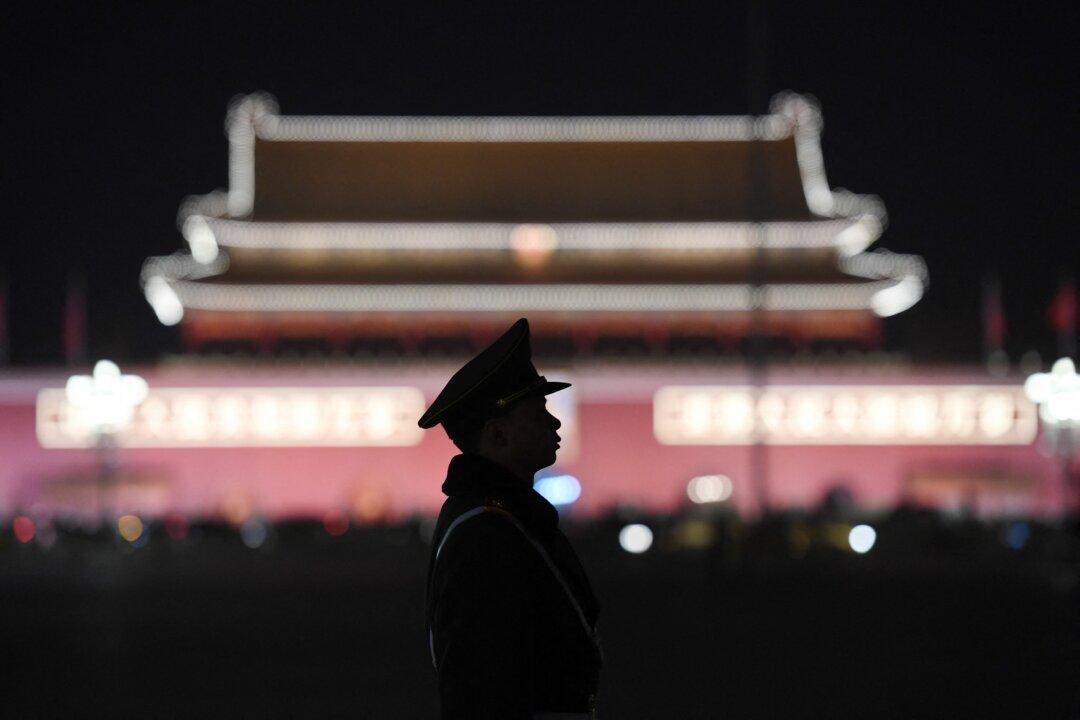Commentary
Spies for China are apparently on a tear.
An alleged tech thief from China was arrested in California on Feb. 6. He allegedly copied thousands of computer files from his former employer—a U.S. defense contractor that specializes in missile tracking—and attempted to divulge such information to China’s “talent programs” within three years of becoming a U.S. citizen.
That same day, news broke of Chinese cyber spies in the Netherlands who allegedly broke into the country’s defense network. The hackers inserted malware into computers and referenced a Roald Dahl story, “Lamb to the Slaughter,” in which a wife murders her unsuspecting husband. Dutch intelligence noted in a report that “this incident does not stand on its own, but is part of a wider trend of Chinese political espionage against the Netherlands and its allies.” The Netherlands previously denounced China for its industrial espionage against Dutch universities and companies, including to acquire space and semiconductor lithography technologies.
Some of the Chinese regime’s most pervasive espionage is in Canada. Concerns there are finally hitting global media, with The Economist reporting on allegations of election interference that helped multiple liberals into office, including Prime Minister Justin Trudeau. The alleged interference defeated election campaigns by conservatives, including former Member of Parliament Michael Chong, who denounced human rights abuse against Uyghurs.
On Feb. 7, news broke of new charges against an alleged Chinese spy who worked for a Canadian water company researching battery materials. Canadian police allege that the Chinese national “gave information about the public corporation to a Chinese university and Chinese research centers and that he published scientific articles and filed patents with them rather than with the public utility,” according to Canadian media. One alleged spy for China named Cameron Ortis worked for Canada’s police and, according to an officer, “planned to communicate safeguarded information” to at least one Chinese official. On Feb. 7, he was sentenced to 14 years for passing state secrets.
In Taiwan, which had an estimated 5,000 Chinese spies in 2017, there has been an uptick in law enforcement against espionage, according to a Feb. 1 report in The Guardian. Whether this is due to better enforcement or more spies is a question of debate. But if the general acceleration of the regime’s espionage is any indication, it is the latter. Those convicted or accused of espionage in Taiwan include some of the country’s senior military officials and politicians, officers in the president’s protection detail, as well as ethnic minorities from China recruited by Beijing to spy on others in their groups. These include Mongolians and Tibetans.
I personally heard stories over the past few years of Uyghurs recruited in other countries to spy on each other and, in the UK, of embassy officials spying on and intimidating Tibetan residents.
On Feb. 7, a report emerged over tensions between China and India over the People’s Liberation Army Navy’s plan to send a spy ship to New Delhi’s “backyard” in the Maldives. Experts claim that the ship will conduct oceanographic espionage critical for submarine warfare. This could include scientific mapping of the seafloor, as well as tracking of surface and subsurface waves, currents, tides, and attempts at detecting sound signatures from adversary vessels.
China opened a new station in Antarctica that experts warn will likely be used to collect naval, rocket telemetry, and signals intelligence on nearby countries, including U.S. allies New Zealand and Australia, where there are critical space facilities. While Antarctica is not supposed to be used for military purposes according to a 1961 agreement signed by China, it is almost certain that China’s five bases there are used for exactly this. The new base will include a satellite ground station with dual-use military capabilities.
Spies working for China come from all races and ethnicities, as the above should make clear. But it is fair to take special care in protecting data from Chinese nationals and anyone of any ethnicity who has extensive ties with China, including close family or investments in China. This includes everyone from scientists and STEM students who are Chinese nationals to U.S. citizen CEOs who run companies like Apple with extensive sales and production in China.
The U.S. government is tying itself in knots with political correctness and false equivalencies between Chinese Americans, who should be protected against all prejudice arising from U.S.–China tensions (there is plenty), and Chinese nationals and companies, which are legally required by Beijing to cooperate when asked to do so by its intelligence agencies.





